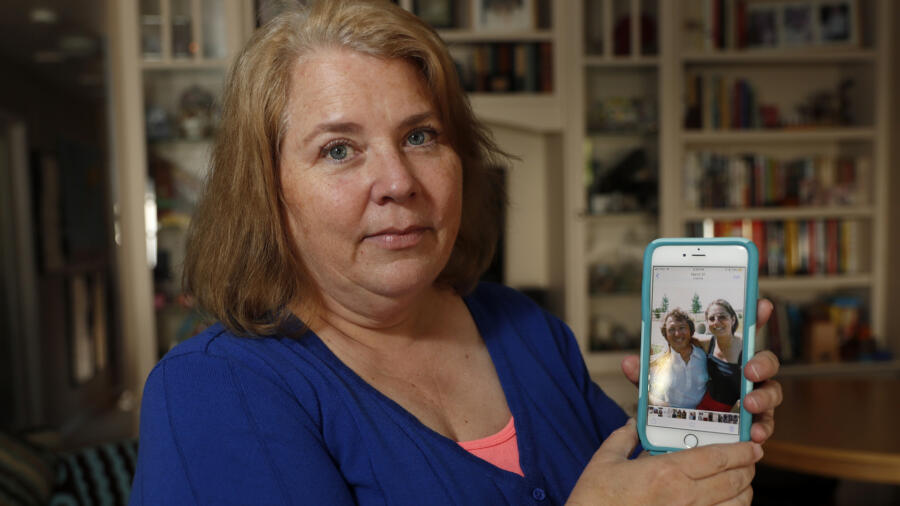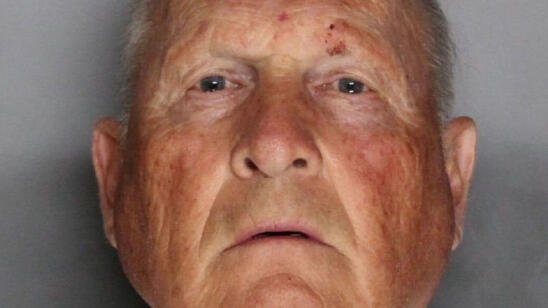On November 3, 2020, Joseph James DeAngelo entered the North Kern State Prison north of Los Angeles to begin serving 11 consecutive life sentences. The 75-year-old former police officer—more widely known as the Golden State Killer—pleaded guilty in June to 13 murders and 13 rape-related charges. The deal spared him the death penalty for what prosecutors say was a reign of terror that involved 87 victims at 53 crime scenes spanning 11 California counties between 1975 and 1986.
DeAngelo was arrested in 2018 after investigators finally linked dozens of cold cases together and identified the perpetrator using novel DNA techniques. That was also the first time dozens of rape victims learned their assaults long ago weren’t isolated incidents, but the work of a serial killer who had remained at large for four decades.
The news brought a flood of strong emotions to these victims, and then frustration, as DeAngelo’s plea deal let him escape a full reckoning of the pain he caused. But as they got to know each other in hearings and meetings with prosecutors over the last two years, something else happened: Many of the women became fast friends.
Early on, some of them got together to talk privately after the hearings at the home of Carol Daly, the only female detective investigating the series of rapes in the Sacramento area in the late 1970s. Daly, now retired, pursued the so-called East Area Rapist case for years, kept in touch with his victims and called them with the news of DeAngelo’s arrest in 2018.
“I never closed my eyes at night without thinking about the victims and what they went through and where this man was,” Daly told a Sacramento TV news station in August 2020.
[Watch I Survived a Serial Killer in the A&E app.]
The real bonding began when many of the women realized they had very similar stories.
“I never thought I’d meet somebody who had been through the same thing,” Kris Pedretti tells A&E True Crime. Pedretti was 15 years old when DeAngelo broke into her home and raped her repeatedly in 1976; her conservative parents never let her talk about the rape again. “It was amazing to look around and think, it happened to her, and her and her…”
Mary Reigel, a trauma therapist who has counseled several of DeAngelo’s victims, says it’s a tremendous relief for survivors of violent crimes to learn that they aren’t alone.
“Every victim thinks they did something wrong—especially women. They think, Maybe he saw me walking down the street and maybe I smiled at him. Maybe I shouldn’t smile at anyone anymore,” Reigel tells A&E True Crime. Hearing that an assailant did the same thing to others helps them accept that it wasn’t their fault. She adds, “Then they realize all the things they’ve missed in their lives because they were blaming themselves all these years.”
As the legal case progressed, the DeAngelo survivors—along with relatives of his murder victims—-formed a Facebook group called “The Squad” to share what little information they learned from local law-enforcement officials.
“The legal system was chopping us into different buckets, and we wouldn’t tolerate that. We had a common bond,” Jennifer Carole, who was 18 in 1980 when DeAngelo murdered her father and stepmother, tells A&E True Crime. “I think the DA’s office didn’t know what they were getting into with us,” she says.
At one point, Pedretti invited the group to a get-together in her backyard. Barbeques and potlucks followed. “It started out with maybe 10 of us,” she says. “Then each time we met, there were new survivors who were ready to meet others. Some women would bring their daughters and their sisters. Sometimes it’s 25 or 30 people, including the families.”
The get-togethers have no particular agenda, and the talk focuses on each other, not DeAngelo, she adds. “We’re not over here crying. We’re laughing. These women are successful. They have careers. They are brave and no one has their guard up. We really like each other.”
“Kris and I will be friends for life now,” says Carole. She also notes that DeAngelo’s early victims, who were teenagers and young women at the time, are in their 50s and 60s now and better equipped to handle the bad memories and powerful emotions his arrest stirred up. “We’re in the grown-woman phase of life. We know who we are and what we won’t tolerate.”
Prosecutors did let the women and family members give victim-impact statements at a public hearing in August 2020, before DeAngelo was sentenced. The testimony went on for three days as dozens of survivors talked about how he stole their innocence, robbed them of loved ones and altered the rest of their lives. Although the convicted former cop sat expressionless through much of it, the experience did provide closure for some.
“I said what I wanted to say. I’m done thinking about him. I was able to shut that door,” Pedretti says.
Several of the women are using their newfound strength to assist other victims of sexual assault. Pedretti created a private Facebook group called “Sexual Assault Survivors! It’s Time to Tell Your Story!” which has 436 members at the time of publication. Carole is a life coach and hosts a podcast discussing her experience and other aspects of the Golden State Killer case.
Both women believe there are other DeAngelo rape victims out there whose cases were never linked with the others, either because they didn’t report it at the time or because local police didn’t recognize the similarities. (DeAngelo admitted to raping more than 50 women, although the statutes of limitations lapsed long ago.)
“We’ve met several of them personally,” says Pedretti. “When the details came out, they said, ‘Oh my God—that was me, too.'”
Carole is compiling a detailed database and timeline of DeAngelo’s movements over the years to help inform other possible victims. “We want to see if there’s a common geography, a common MO. We may be able to figure out if he had an accomplice,” she says. “Mostly, it’s a way to tell the rest of the story, and to empower these women by letting them know we believe them.”
Related Features:
Surviving a Serial Killer—and What Comes Afterward
Why Aren’t Police Solving More Murders With Genealogy Websites?


